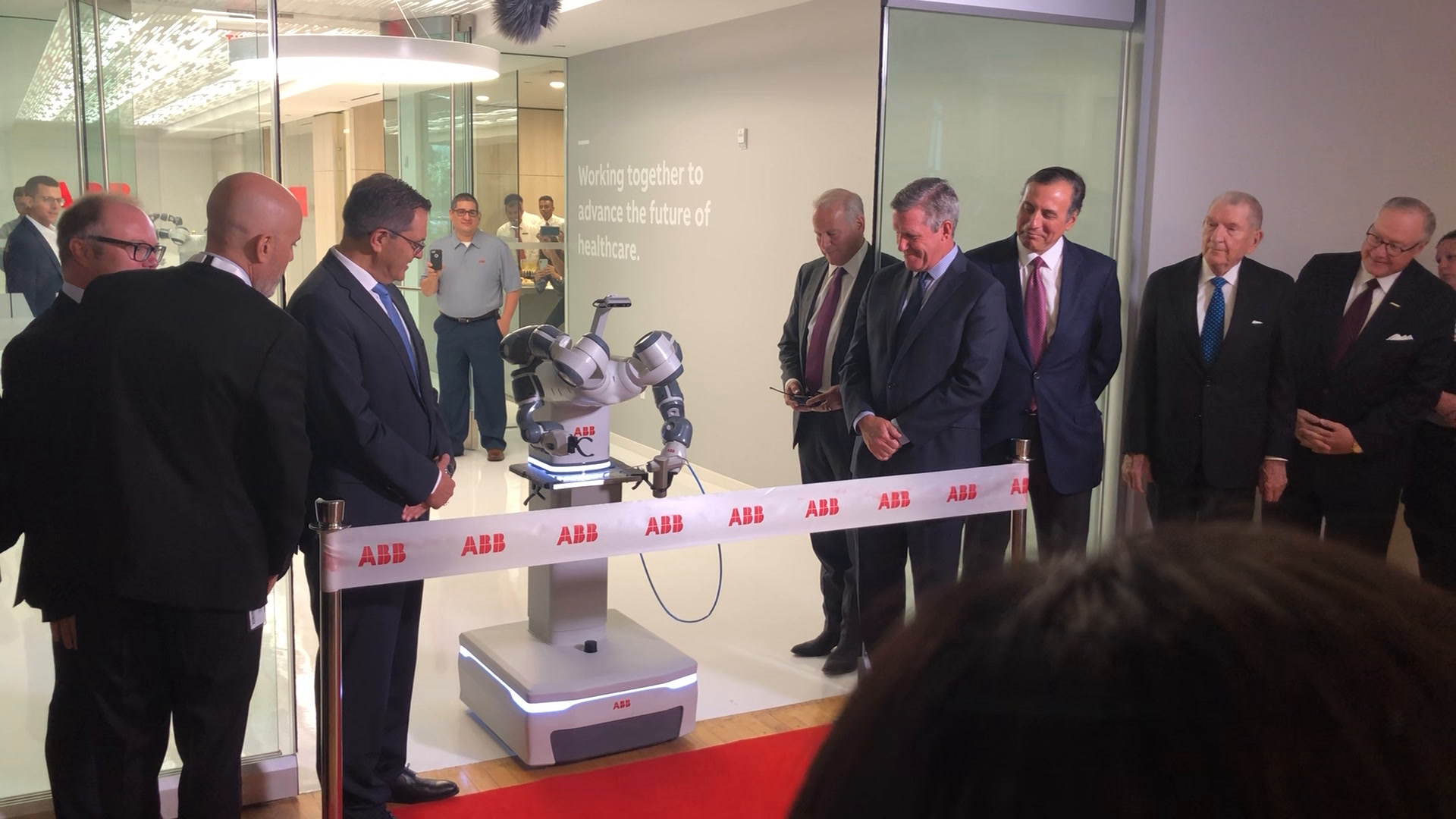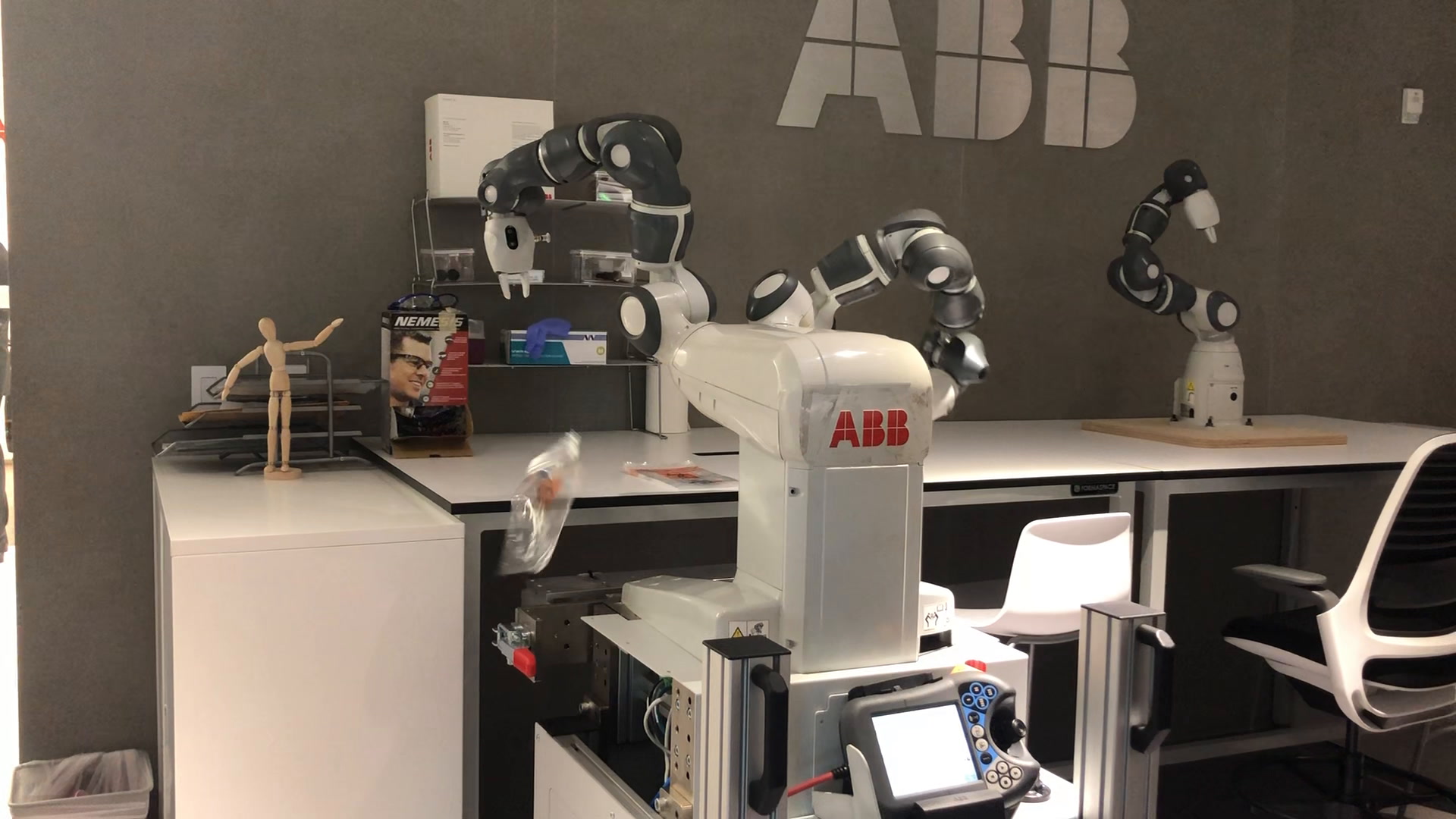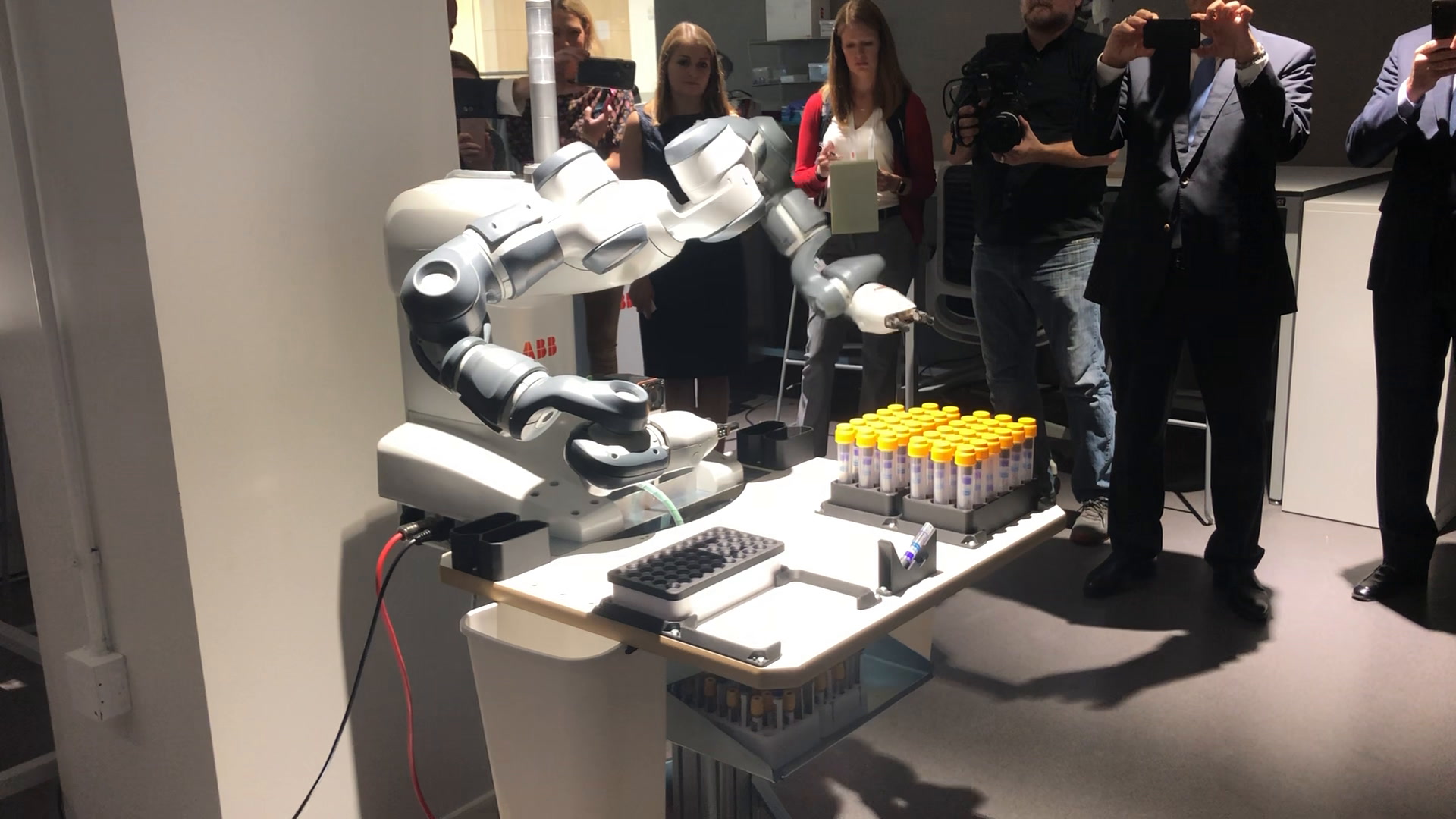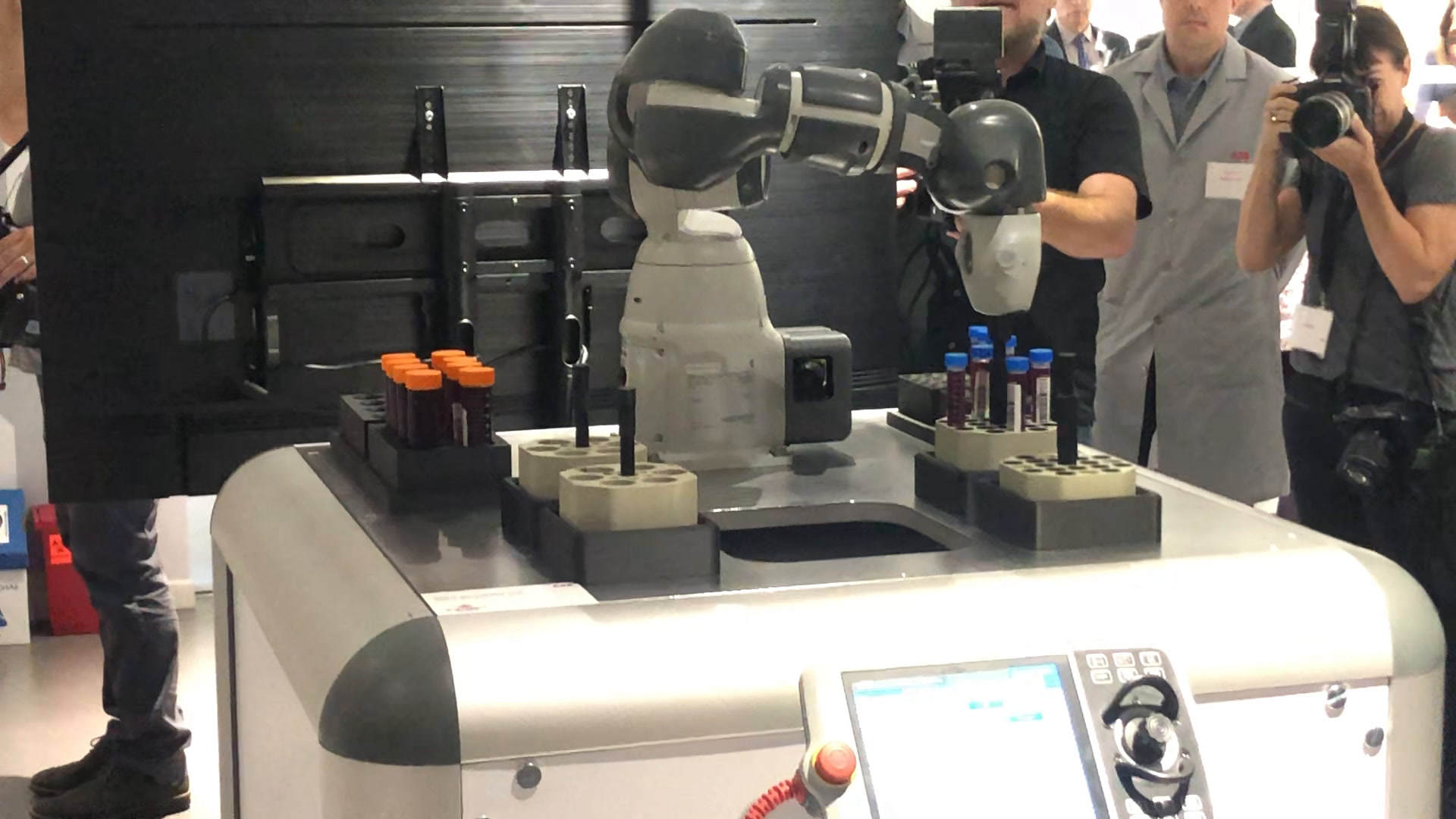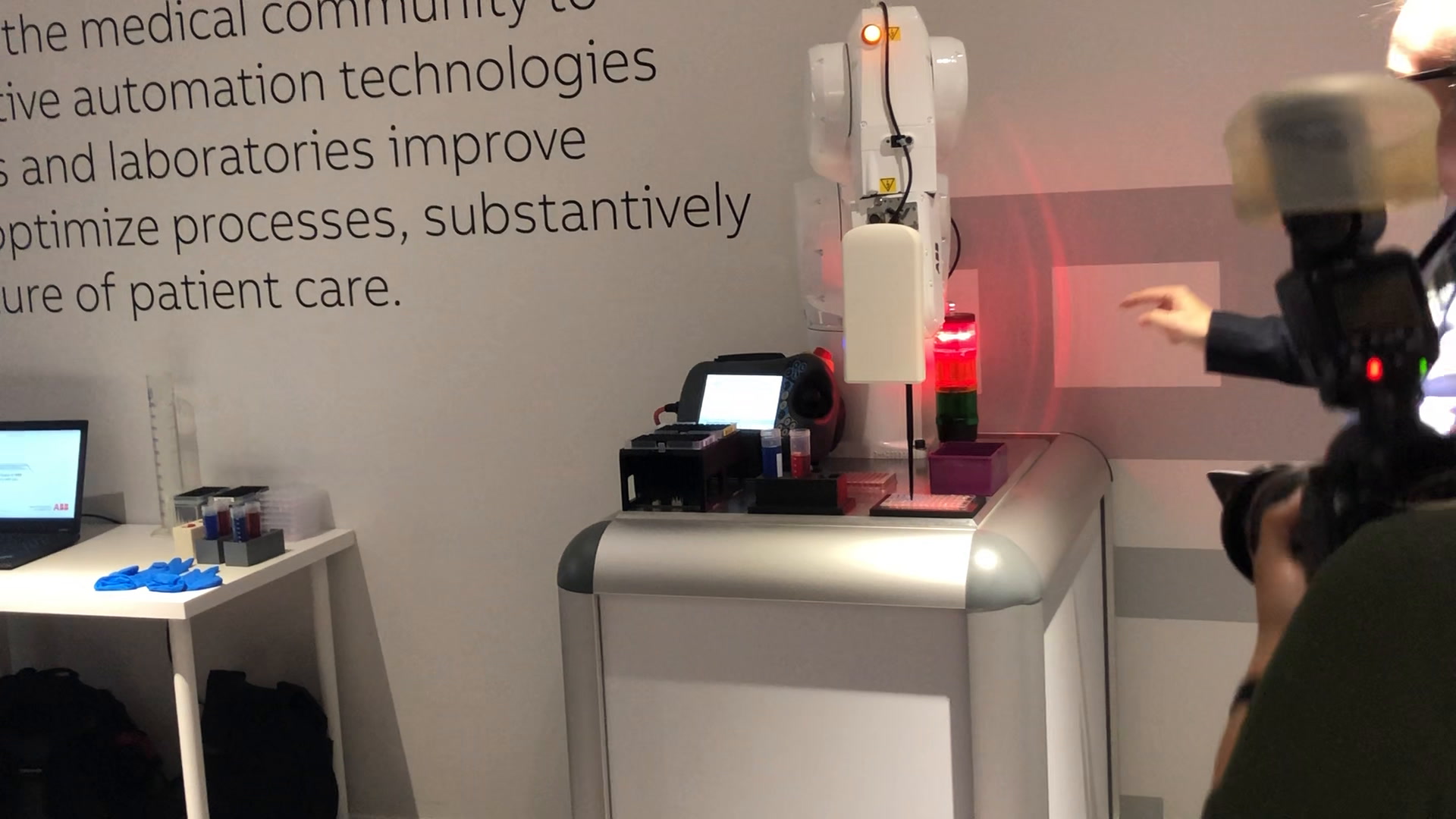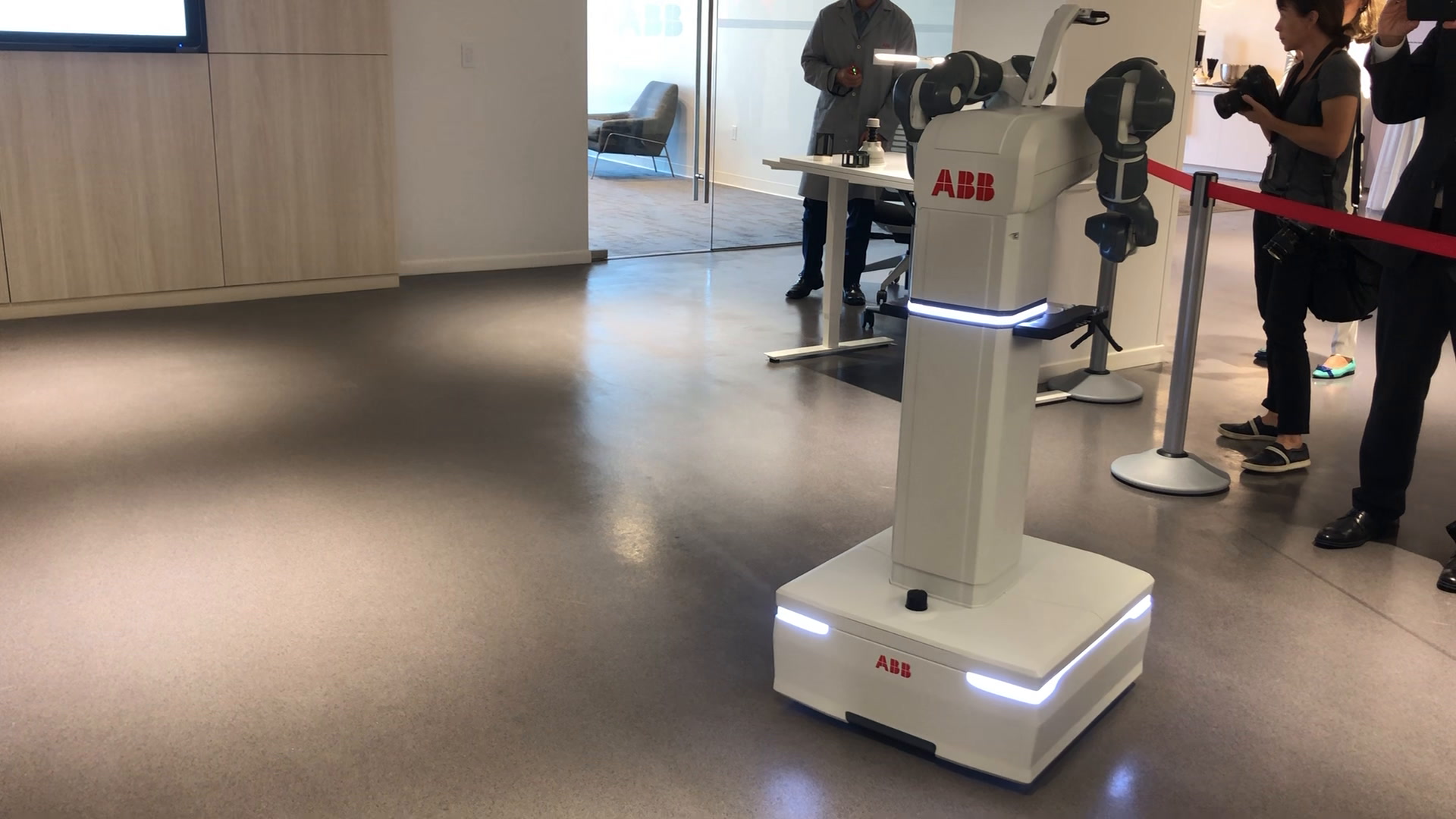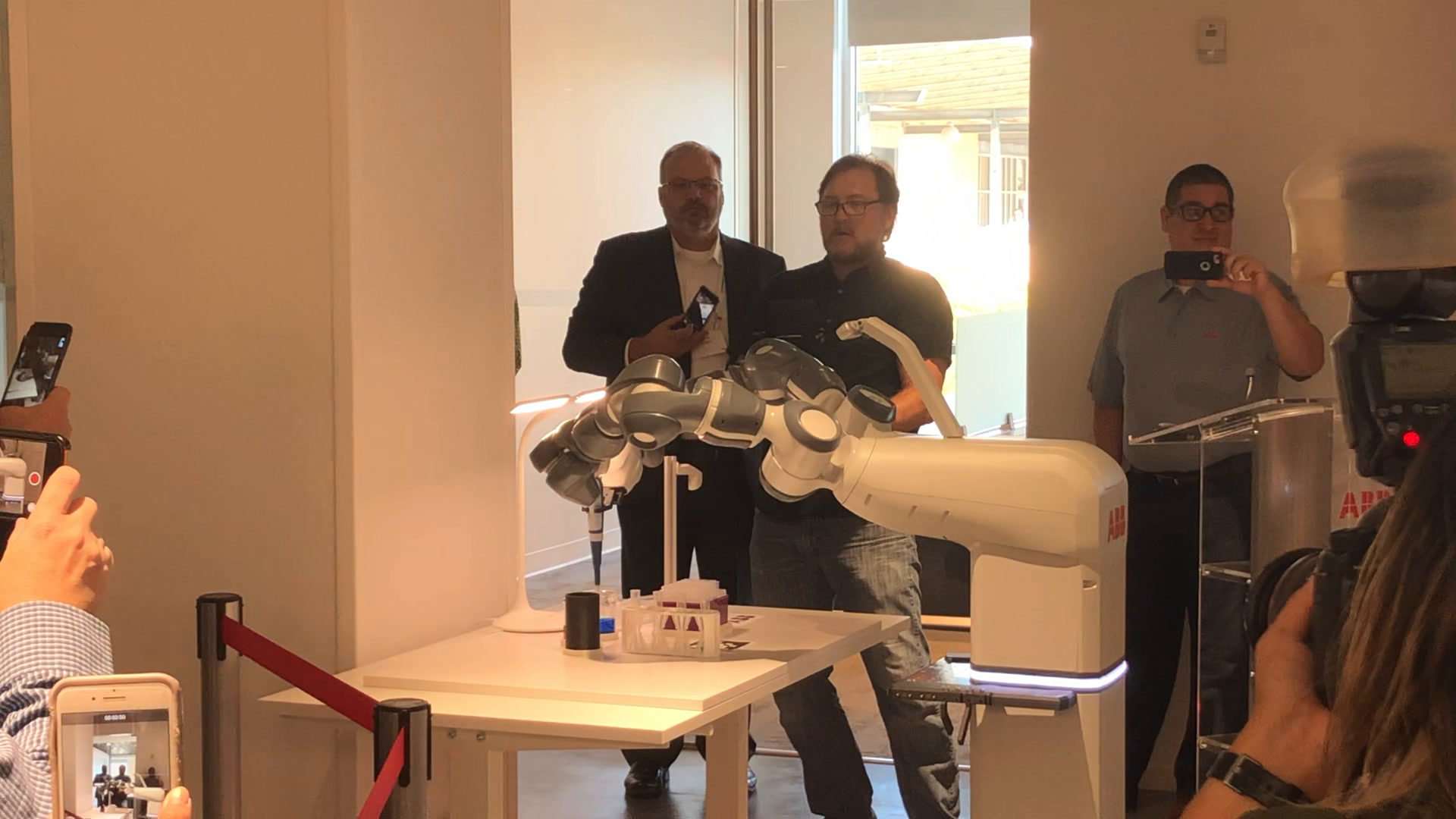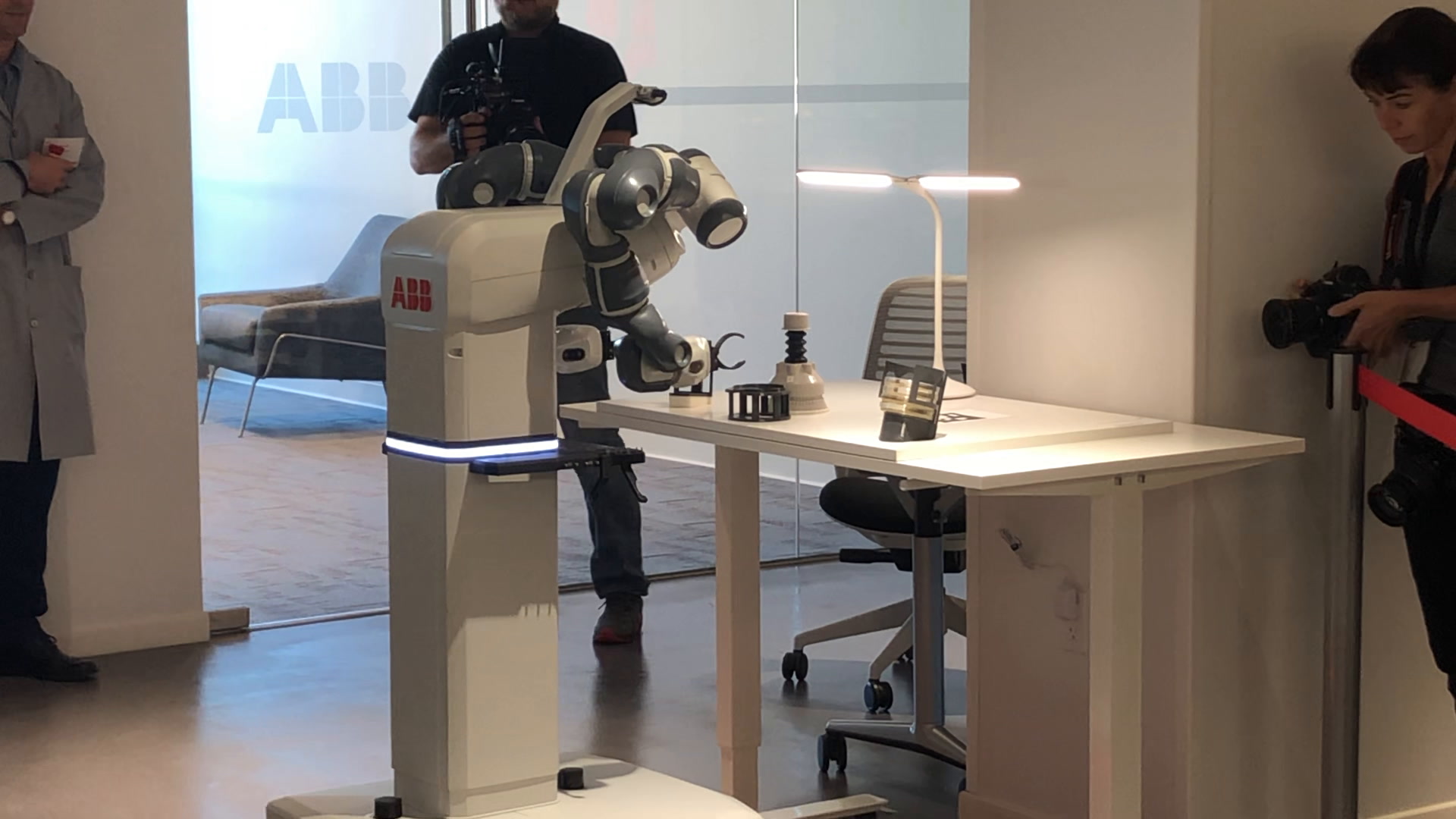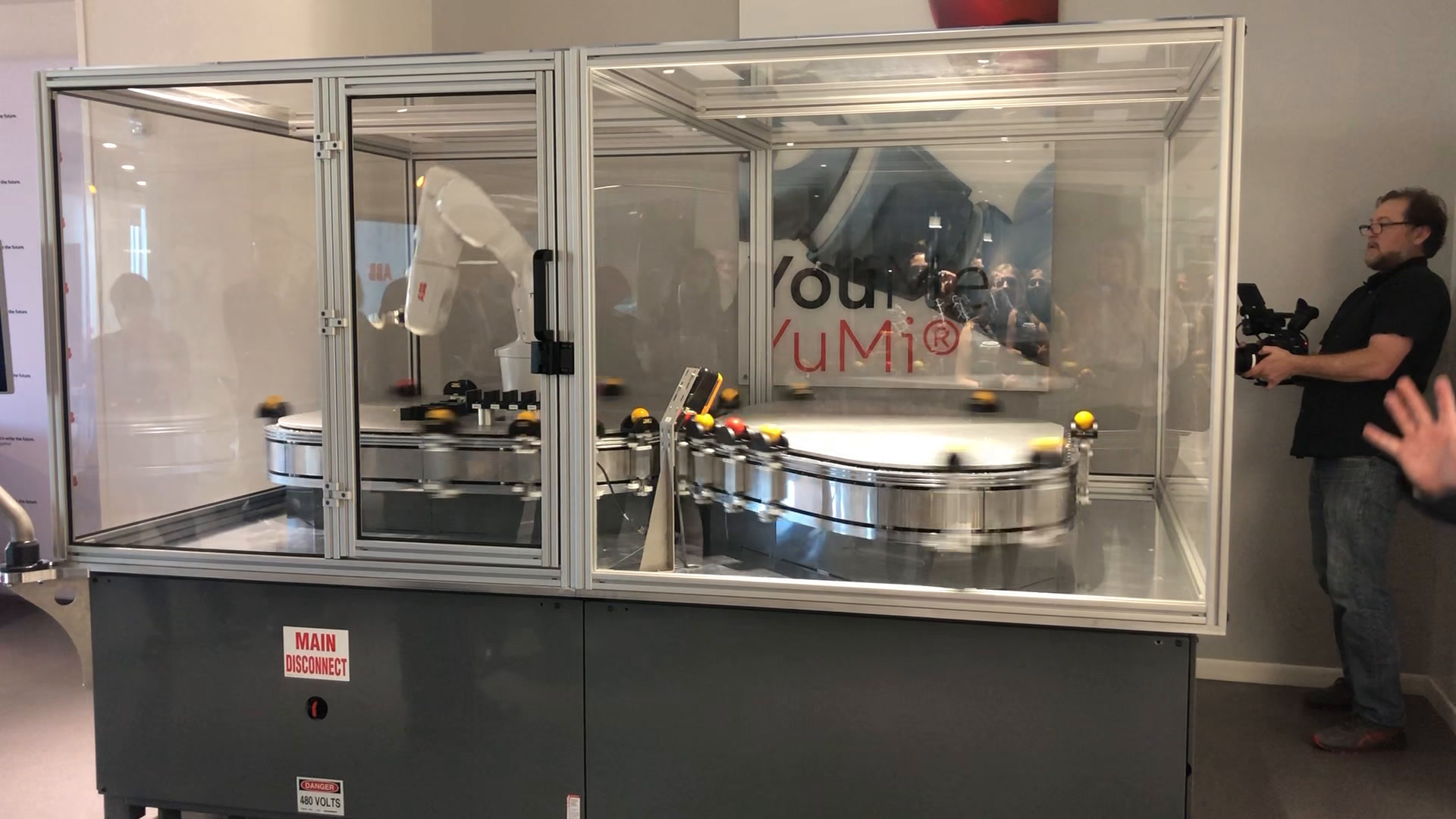Meet the robots
Videos: Robotics company unveils its Houston operation at the Texas Medical Center
Houston has a new fleet of robots training to better streamline health care operations. ABB Robotics cut the ribbon of its Texas Medical Center incubator on Wednesday, October 9.
"This is really an exciting day for us at ABB because we are opening up our innovation hub in a globally unique place at the Texas Medical Center," says Sami Atiya, president of Robotics and Discrete Automation at ABB, at the grand opening event.
According to ABB research, the industry expects 60,000 non-surgical medical robots by 2025, which is four times that of 2018. Zurich-based ABB has 400,000 robotics products across industries in over 53 companies, but this is their first dedicated health care center. The 5,300-square-foot space located in TMC Innovation Institute, which was announced earlier this year, will have around 20 employees in the facility managing robots conducting a myriad of tasks.
The potential for collaboration between ABB and TMC is just getting started with the hub space. ABB already has connections with TMC's member institutions and ABB also recognizes the innovation avenues the TMC brings to the table.
"This is not only about the chance to interact with 25 hospitals," Atiya says. "We have the chance to interact with bright startups, bright academia, and with an ecosystem that is unique. We really looked around the world to set up this business because we need to learn. We need to interact."
One way TMC's CEO, William McKeon sees a huge opportunity for robots is in the inventory process. Right now, each hospital manages its own inventory process with its own team of employees. McKeon explains how that process can be streamlined and better organized using robotics.
"It may not be as exciting as some of the things you see here [in the hub], but it's equally as meaningful and economically important in lowering our health care costs," McKeon says.

